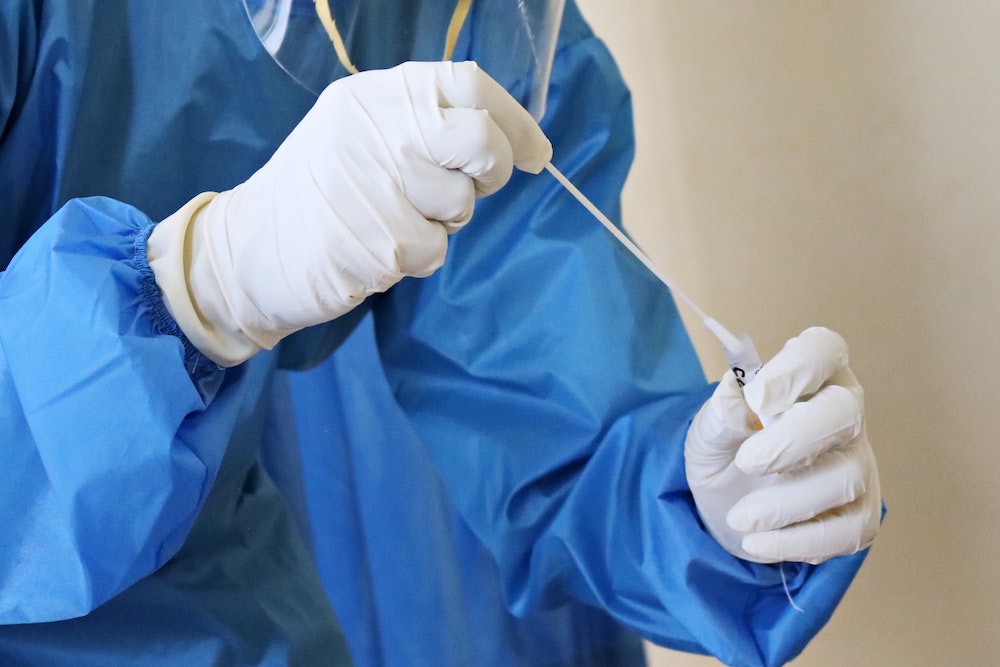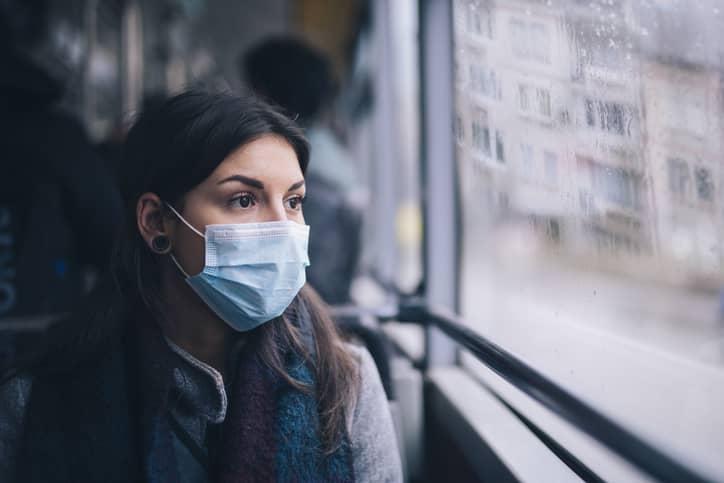Since the start of the COVID-19 pandemic, we’ve learned a lot about the coronavirus and the disease it causes – and we learn more with each new variant that appears.
The main COVID-19 symptoms can include a temperature (fever), cough and a loss of your sense of smell or taste. But we now know that symptoms can vary a lot, depending both on the person and the variant they’re infected with.
There are many other common symptoms, including extreme tiredness (fatigue), shortness of breath and achy muscles, as well as cold-like symptoms such as a runny nose, sore throat and headache.
We also now know that some people continue to get COVID-19 symptoms for weeks or months after they first become ill – known as ‘long COVID’. Read on to learn what we know so far about long COVID, including common symptoms, who might be more likely to get it and how it’s diagnosed and treated.
What is long COVID?
Many people with mild COVID-19 will fully recover within 2 or 3 weeks. But if you’re struggling to get over the effects of the illness, you’re not alone.
The latest figures suggest that about 1.3 million people in the UK – 2% of the population – report symptoms that have lasted for more than 4 weeks after being infected.
The term long COVID can refer to 2 things:
- ongoing symptomatic COVID-19 – when you still have symptoms 4 to 12 weeks after infection
- post-COVID-19 syndrome – when symptoms continue for more than 12 weeks (and can’t be explained by another diagnosis)

What are the symptoms of long COVID?
There are many symptoms that have been linked to long COVID, and we’re still learning about the long-term effects of the coronavirus.
The most commonly reported long COVID symptoms include:
- fatigue
- shortness of breath
- loss of sense of smell or taste
- problems with memory or concentration known as ‘brain fog’
Other common long COVID symptoms include:
- cough
- low-grade temperature (fever)
- chest pain
- headaches
- muscle pain and weakness
- tummy trouble (gastrointestinal upset)
- skin rashes
- mental-health issues, such as anxiety and depression
There is also some evidence to suggest that long COVID may cause a condition called postural orthostatic tachycardia syndrome (PoTS), which makes your heart rate speed up more than it should when you stand up. Symptoms can include dizziness, fainting, brain fog and fatigue.

What causes long COVID?
At the moment, it’s not understood why some people get long COVID and other people don’t. Scientists think it could be caused by various things.
These include your body having an overactive immune response to the virus; ‘pockets’ of virus that stay in your body for a long time; and inflammation of small blood vessels in your body, along with abnormal blood clotting events.
Who’s affected by long COVID?
Only a small number of people who get COVID-19 go on to develop long COVID – but it’s possible for anyone who’s been infected to be affected. This means it’s difficult to predict who will get it.
The key things we know so far about who’s affected by long COVID are:
- your risk isn’t necessarily linked to how ill you were when you were infected. You can be diagnosed with long COVID without ever having tested positive for COVID-19, and may have had no symptoms (been asymptomatic) when infected
- it can affect young people who were previously fit and healthy, as well as older people with existing health problems
- your risk may be higher if you’re more severely ill with COVID-19, according to some studies
- symptoms are reported more often by certain groups of people, including those who have another health condition or disability, work in health or social care (including doctors) or live in deprived areas
- women may be more at risk of long COVID – and especially middle-aged women – according to the latest studies. Read more about women and long COVID
When to see a doctor
If you still have COVID-19 symptoms more than 4 weeks after being infected, see a doctor.
Your symptoms may be part of your body’s response to the virus, but they could also be caused by something else. Either way, it’s important to get medical advice as soon as you can, so you can access support and treatment if you need it.
You should also see a doctor if you get any new symptoms, your symptoms are getting worse, or you’re worried about your symptoms.
You should get urgent medical attention if you have any of the following:
- chest pain
- trouble breathing
- weight loss
- coughing up blood

How is long COVID diagnosed?
Your doctor will want to know about your general medical history and your long COVID symptoms, including how they’re affecting your day-to-day life and whether they change or come and go over time.
For this reason, you might find it useful to keep a note of your symptoms in the weeks after being infected with COVID-19, so you can see how they progress. You can track your symptoms using the Healthily app journal.
Your doctor will examine you and they may:
- check your blood pressure and heart rate – when lying down and standing
- measure the amount of oxygen in your blood with a pulse oximeter
Depending on your symptoms, they may also suggest some tests to check that your symptoms aren’t being caused by another condition. These could include:
- blood tests
- chest X-ray
- electrocardiogram (ECG) or exercise tolerance test
What are the treatment options for long COVID?
Things your doctor can do to help you manage long COVID
After your assessment and diagnosis, your doctor will work with you to make a plan for your recovery. As well as giving you information and providing access to support or treatment, they can:
- refer you to a recovery programme – depending on your symptoms, this may be either a face-to-face programme or something you follow at home
- refer you to a long COVID clinic – this will have a team of different specialists, such as physiotherapists, occupational therapists and psychologists, who can help with various symptoms
- refer you for specialist investigations – for example, for more tests to diagnose PoTS or for more tests to rule out other causes of loss of smell
4 things you can do yourself to manage long COVID
-
If fatigue is a problem, make sure you rest regularly and plan your day so you can avoid getting overtired. If you can, ask other people for help, prioritise what’s important to you, and do your most important jobs when you have the most energy. Try to have a regular routine each day, and keep stress and anxiety as low as you can.
-
If you’re struggling with a cough or breathlessness, practising breathing control or breathing techniques can help. You should ensure you drink plenty of water throughout the day, and take any medication you’ve been prescribed. Avoiding staying in 1 position for long periods can also help.
-
If your sense of smell hasn't come back after 2 weeks, it's recommended that you start smell training. You can find out more about this here.
-
If you've been diagnosed with PoTS, things that can help include drinking plenty of fluids, avoiding caffeine and alcohol and getting up slowly when you’ve been lying down. Read more about managing PoTS.
For more self-help tips and treatment options for long COVID symptoms, read your long COVID treatment and recovery plan.
How long does long COVID last?
Everyone reacts differently to COVID-19 and will have a different recovery period. And while most people fully recover within 12 weeks, long COVID symptoms can last longer – though as yet we don’t know exactly how long this can be.
Read about the latest research on how long the symptoms of long COVID can last.
In children, recent studies suggest that long COVID is rare, affecting fewer than 1 in 100. And if it does happen, symptoms usually go away completely within 1 to 5 months.
Long COVID-19 can have an impact on your family, career, social and sex life, and dealing with all the effects can take a toll on your mental health. In fact, some research suggests anxiety or mood disorders may be more common after a COVID-19 infection. So remember to be kind to yourself. And if you’re struggling with your mental health, it’s a good idea to speak to your doctor or a health professional.
Find more advice about managing the symptoms of long COVID( on the NHS website Your COVID Recovery and the SIGN Long COVID patient booklet.
Your health questions answered
Can Omicron cause long COVID?
Answered by: Dr Roger Henderson
“The Omicron variant of coronavirus was identified as a variant of concern by the World Health Organization (WHO) in November 2021, and since then it has become the dominant variant in the UK. It’s too soon to say whether Omicron will cause more or fewer cases of long COVID – although research suggests it may be more likely to cause milder illness overall. From the latest UK figures, fatigue is still the most commonly reported long COVID symptom, followed by shortness of breath and loss of sense of smell and taste.”







